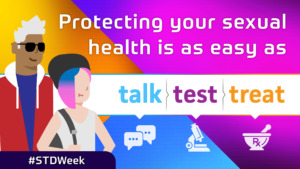Ritchie Regional Health Center Doddridge Wellness Center is hosting fun-filled clinic to children of all ages
– $10 Sports Physicals
– Dental Exams
– Vaccines
– School Physicals


RRHC’s Doddridge County School-Based Wellness Center (located between Doddridge County Middle School and Doddridge County Elementary School) will be offering FREE drive-through COVID testing today, May 31, 2022, from noon – 1 p.m.
Call 304-699-0784 to pre-register and upon arrival. Results will be available within 24 – 48 hours via LabCorp’s Patient Portal App or online at patient.labcorp.com.
PLEASE NOTE: Today is the LAST DAY the Doddridge Wellness Center will be offering free PCR COVID testing. Going forward, an appointment will need to be made and you will have to be seen by a medical provider to be tested.
However, free rapid testing will still be available for students & faculty of Doddridge County Schools ONLY, Tuesdays & Thursdays, noon – 1 p.m.

FEMA may provide COVID-19 Funeral Assistance to you if:
FEMA may approve COVID-19 Funeral Assistance for expenses such as:
To learn more and start an application, call 844-684-6333.
You must provide FEMA a copy of an official death certificate that shows the death occurred in the United States, including U.S. territories and the District of Columbia, occurred after January 20, 2020, and was attributed to COVID-19.
If the death certificate was issued between January 20 and May 16, 2020, it must either 1) attribute the death directly or indirectly to COVID-19 or 2) be accompanied by a signed statement from the original certifier of the death certificate, or the local medical examiner or coroner from the jurisdiction in which the death occurred, listing COVID-19 as a cause or contributing cause of death. This signed statement must provide an additional explanation or causal pathway, linking the cause of death listed on the death certificate to COVID-19.
You must provide FEMA with a signed funeral home contract, invoice, receipts, or other documentation that includes:
To learn more or start an application, call 844-684-6333.


As the COVID-19 pandemic has evolved, so have public health mitigation strategies and guidance. The West Virginia Department of Health and Human Resources’ Bureau for Public Health continues to transition from universal case and contact tracing to a more strategic approach of targeted case investigations and outbreak investigations. This pivot is an important step as the pandemic moves toward becoming an endemic in West Virginia, and the world.
If you test positive for COVID-19, public health departments will promote self-care education to all positive cases but will no longer conduct universal case investigation and contact tracing, release from quarantine, or return to work letters. Please follow the Centers for Disease Control and Prevention guidance if you test positive or have been exposed to COVID-19.

January is Cervical Health Awareness Month. The West Virginia Department of Health and Human Resources Breast and Cervical Cancer Screening Program (WVBCCSP), a program dedicated to helping low-income, uninsured, or underinsured women receive free or low-cost Pap tests, encourages women to schedule their Pap test during January, or talk with their health are provider about when it is right for them to be screened.
The Pap test is played a significant role in reducing cervical cancer deaths. While cervical cancer was once one of the most common causes of cancer deaths for U.S. women, this is no longer true. The Pap test can detect changes in the cervix before cancer develops, and it can detect cancer in its earliest stages when more treatment options are available. Cervical cancer is nearly 100% curable when found early.
In addition to cervical cancer screening, knowing and understanding the various risk factors can reduce your chances of developing cervical cancer. The most significant risk factor associated with cervical cancer is infection with the Human Papillomavirus (HPV), which can be prevented by getting an HPV vaccination. Other risk factors include smoking, infection with the human immunodeficiency virus (HIV), giving birth to three or more children, using birth control for a long time (five or more years), or having multiple sexual partners.
The West Virginia Breast and Cervical Cancer Screening Program (WVBCCSP) works with providers statewide to ensure women receive the services they need. An uninsured or underinsured woman with a family of four can have a total household income of $66,252.00 and still be eligible for the WVBCCSP. Don’t hesitate; contact one of the Program’s providers today to find out if you qualify, and to talk about what you can do to prevent cervical cancer. Women should visit the WVBCCSP website at www.wvdhhr.org/bccsp or call the WVBCCSP at 1-800-642-8522 for more information about the program or to find a provider in their area.